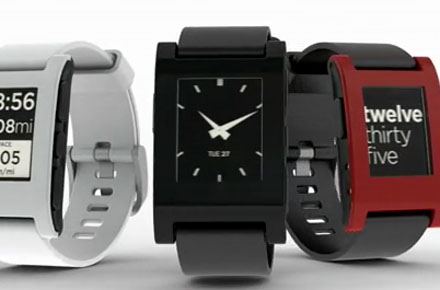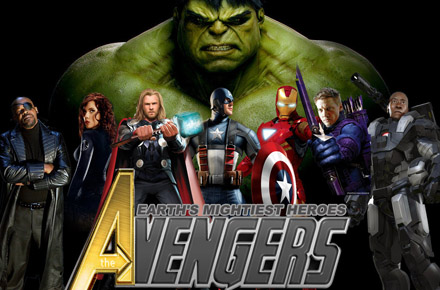What New Dictionary Words Tell Us About How Much We Suck

The Concise Oxford English Dictionary is turning 100 years old and to celebrate they added 400 new words. For those of you who were smarter than to study etymology (study of words), semantics (study of meaning) or lexicography (the study of dictionaries) and thus don’t know, this is kind of a big deal. The new words will be included in the 12th edition of the dictionary started in 1911 whose goal is to describe current English usage.
The Concise OED has roughly 240,000 entries, which is pretty impressive considering the average American’s vocabulary is somewhere between 20,000 and 30,000 words. The 400 new words being included were distilled from a database of 2 billion, compiled by scraping the web.
Now, I’m not going to go into a long drawn out diatribe on how including slang into the official lexicon degrades a language, although I could and really want to. Instead the trouble that I have with this list is how it reflects on English speakers right now. The editor of the Concise OED, Angus Stevenson, has said that new words are a reflection the era and society in which they became ubiquitous enough to enter the dictionary.
So what do these new words say about us? Let’s take a look.
1. Mankini
noun – a brief one-piece swimsuit for men, with a T-back.
This eyesore first made waves thanks to Sacha Baron Cohen’s character, Borat, who promoted the 2006 release of his eponymous movie in a green mankini at the Cannes Film Festival. Borat isn’t the only person to wear one unfortunately. In fact some fashion forward bloggers feel mankinis are here to stay; and now for better or for worse, the word is too.

2. Sexting
noun – the sending of sexually explicit photographs or messages via mobile phone.
While some sources (particularly this infographic) want to trace the history of sexting back to 1837 and Samuel Morse, inventor of Morse code, sexting really didn’t catch on till about 2005, once SMS messaging, T9 text input and mobile photo sharing became mainstays in the life of every high schooler, and lately, most politicians. I guess if enough idiots do it, it warrants a word.

3. Woot
exclamation – (especially in electronic communication) used to express elation, enthusiasm or triumph.
Woot, is a perfectly acceptable exclamation. It’s short, fun and quasi-onomatopoeia. I was personally introduced to the word through the flash web comic Teen Girl Squad Episode 2… The term initially derives from gamer rhetoric in the more stylized typography w00t, which was a shorthand version of “Wow, Loot.” And since gamers are the number one contributors to web based message boards, blogs, forums and any other content based web pages where they can troll, it is no wonder that a woot showed up in the web scraped lexical database.
4. Retweet
verb – (on the social networking service Twitter) repost or forward a message posted by another user.
According to Twitter’s support site, “Sometimes you come across a Tweet that you just have to share,” and retweeting is a way for you to share what they said to all of your followers. There are how to’s, etiquette guides and instructions on how to credit retweets, but none of them mention how lazy retweeting is and the dangerous precedent it sets for creative property rights infringement. Even in 140 character nuggets, taking other peoples content and using it as your own is still plagiarism.
5. Gastric Band
noun – an inflatable silicone device that is placed around the top portion of the stomach in order to treat obesity.
We’re fat. But we don’t want to be. BUT…we’re not willing to put in the work to do it right. I’m afraid I have to side with Mila Kunis and say, if you’re not losing weight, you’re just not trying.
6. Jeggings
noun – tight-fitting stretch trousers for women, styled to resemble a pair of denim jeans.
*face palm* Because hipsters needed an even more ironic form of skinny jean. The only thing good thing to have come from this trend is a particularly catchy song from Two Cow Garage.
7. Cyberbullying
noun – the use of electronic communication to bully a person, typically by sending messages of an intimidating or threatening nature.
I think this word is important to have included as cyberbullying is a real problem, and defining it is in part accepting that it is a problem and that it needs to be addressed. It’s just unfortunate that the term has become ubiquitous enough to warrant inclusion.
8. Surveil
verb – keep (a person or place) under surveillance.
What were the main pillars of the dystopic society in Orwell’s 1984? Perpetual war, pervasive surveillance and incessant public mind control. Check, check and check. Pretty much anyone from news editors to Batman can take advantage of how interconnected we are. And we’re so busy stalking ex’s on Facebook that we are too distracted to do anything about it. Oh well. Who needs civil liberties anyway?

So where does that leave us? Overweight, oversexed, underdressed gamers who spend all day online (thus the overweight) both stalking and being stalked, intimidating people we call our friends as we steal their ideas and celebrate our digital loot.
So in other words…

this guy.
About the Author: Greg Buckskin writes on pop culture and technology for Comcast.USDirect.











